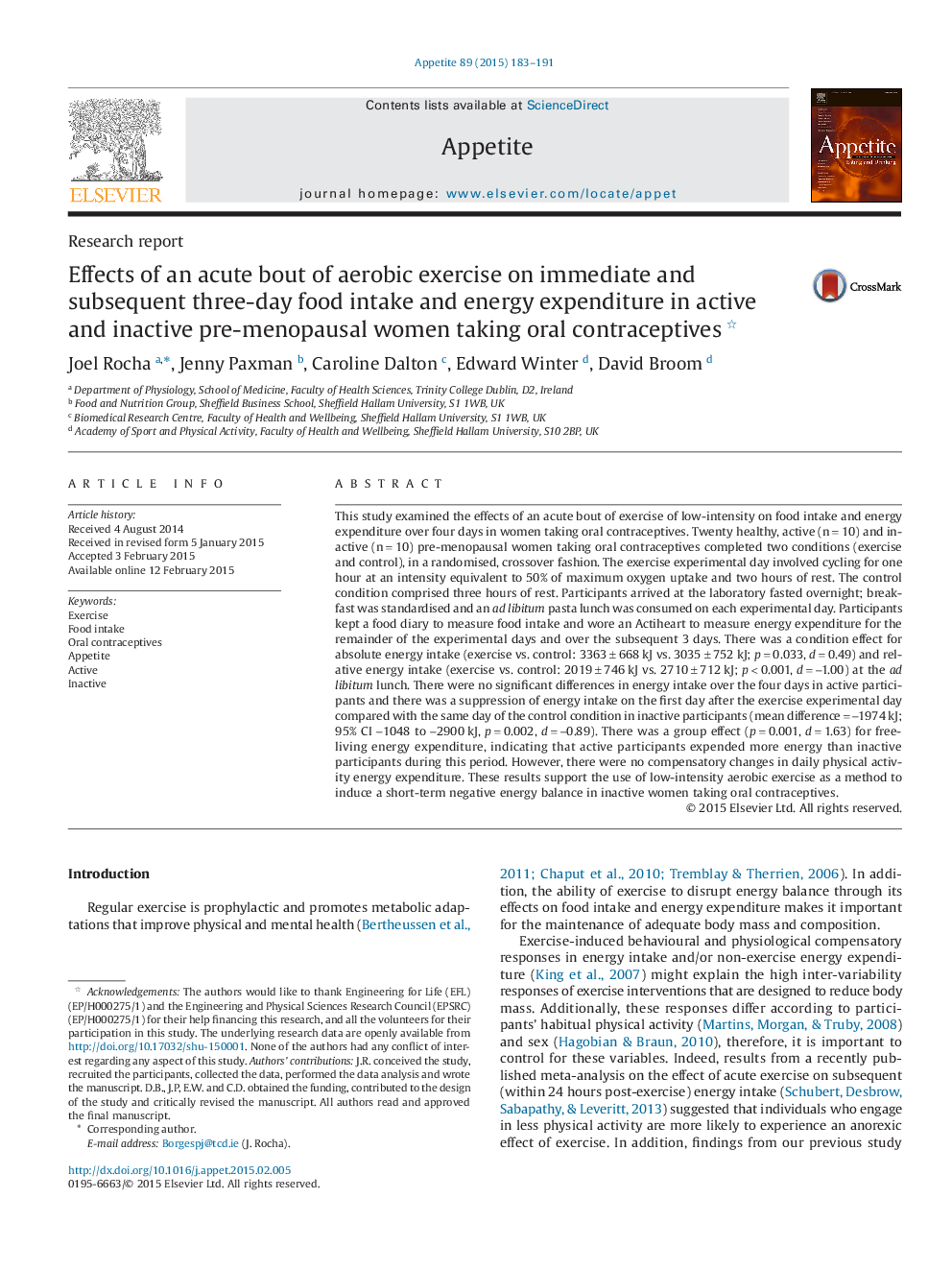| Article ID | Journal | Published Year | Pages | File Type |
|---|---|---|---|---|
| 7308884 | Appetite | 2015 | 9 Pages |
Abstract
This study examined the effects of an acute bout of exercise of low-intensity on food intake and energy expenditure over four days in women taking oral contraceptives. Twenty healthy, active (nâ=â10) and inactive (nâ=â10) pre-menopausal women taking oral contraceptives completed two conditions (exercise and control), in a randomised, crossover fashion. The exercise experimental day involved cycling for one hour at an intensity equivalent to 50% of maximum oxygen uptake and two hours of rest. The control condition comprised three hours of rest. Participants arrived at the laboratory fasted overnight; breakfast was standardised and an ad libitum pasta lunch was consumed on each experimental day. Participants kept a food diary to measure food intake and wore an Actiheart to measure energy expenditure for the remainder of the experimental days and over the subsequent 3 days. There was a condition effect for absolute energy intake (exercise vs. control: 3363â±â668âkJ vs. 3035â±â752âkJ; pâ=â0.033, dâ=â0.49) and relative energy intake (exercise vs. control: 2019â±â746âkJ vs. 2710â±â712âkJ; pâ<0.001, dâ=ââ1.00) at the ad libitum lunch. There were no significant differences in energy intake over the four days in active participants and there was a suppression of energy intake on the first day after the exercise experimental day compared with the same day of the control condition in inactive participants (mean differenceâ=ââ1974âkJ; 95% CI â1048 to â2900âkJ, pâ=â0.002, dâ=ââ0.89). There was a group effect (pâ=â0.001, dâ=â1.63) for free-living energy expenditure, indicating that active participants expended more energy than inactive participants during this period. However, there were no compensatory changes in daily physical activity energy expenditure. These results support the use of low-intensity aerobic exercise as a method to induce a short-term negative energy balance in inactive women taking oral contraceptives.
Related Topics
Life Sciences
Agricultural and Biological Sciences
Food Science
Authors
Joel Rocha, Jenny Paxman, Caroline Dalton, Edward Winter, David Broom,
